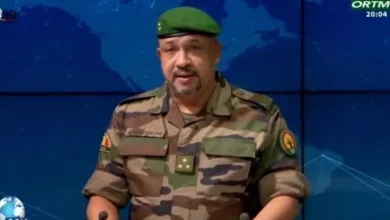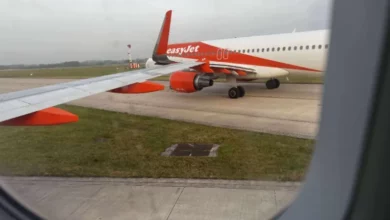

The U.S. is sending a guided missile submarine to the Middle East and speeding the arrival of an aircraft carrier strike group as Israel braces for retaliatory attacks from Iran and its proxies after the assassination of senior members of Hamas and Hezbollah.
“We’re following Hezbollah and Iran and ready,” the Israel Defense Forces spokesman, Rear Adm. Daniel Hagari, said in a statement Monday evening. “We’re at highest alert.”
The Defense Department confirmed late Sunday that Defense Secretary Lloyd Austin had ordered sending the USS Georgia guided missile submarine to the region. He further ordered the USS Abraham Lincoln Carrier Strike Group, which is equipped with F-35C fighter jets, to accelerate its ongoing transit to the area.
The U.S. orders, and the rare step to publicly announce the deployment of a submarine, came as Austin reaffirmed Washington’s “commitment to take every possible step to defend” its ally in a call with his Israeli counterpart, Yoav Gallant, according to a readout from the Pentagon.
Gallant “detailed IDF readiness and capabilities in the face of threats posed by Iran and its regional proxies, and discussed interoperability with the wide range of U.S. military capabilities deployed to the region,” his office said.
Fears are mounting that Iran might soon respond to the assassination of Hamas’ political leader, Ismail Haniyeh, who was killed in Tehran last month after having attended the inauguration ceremony for Iranian President Masoud Pezeshkian.
Both Iran and Hamas blamed Israel for the killing, and while Israel has remained quiet on the matter, it is widely believed to have carried out the assassination.
Iran’s supreme leader, Ayatollah Ali Khamenei, vowed “severe punishment” for the assassination, after which Yahya Sinwar, the alleged mastermind of Hamas’ Oct. 7 terrorist attack on Israel, was named as the group’s political leader.
But it remains unclear exactly how Iran plans to retaliate.
Reports of the country’s Revolutionary Guard’s beginning military drills last week stoked fears of a response that the U.S. and its allies worry could spark a broader regional conflict.
The Iran-backed Lebanese militant group Hezbollah similarly vowed retaliation for the killing of senior commander Fuad Shukr in Beirut hours before Haniyeh’s assassination.
As tensions continue to spiral, the U.S. has ramped up pressure on Israel and Hamas to secure a cease-fire and hostage release deal that would end Israel’s deadly offensive in Gaza, where local officials say around 40,000 people have been killed since Hamas launched its attacks, in which 1,200 people were killed and around 250 others were taken hostage.
On Monday, President Joe Biden spoke with the leaders of France, Germany, Italy and the United Kingdom to discuss the situation and ongoing efforts to de-escalate tensions, according to National Security Council spokesperson Sean Savett.
The U.S. is pushing its allies to come to Israel’s aid in the event of an attack from Iran and its allies like they did in April, when Tehran launched more than 300 missiles and drones aimed at Israel.
At that time, the U.K. and France provided military support in intercepting the attacks.
Earlier, Britain, France and Germany called for Iran and its allies to refrain from retaliation to avoid further escalating tensions and potentially imperiling efforts toward a cease-fire deal.
In a joint statement, the three countries said Iran and its proxies would “bear responsibility for actions that jeapordise the opportunity for peace and stability.”
The trio endorsed the latest push for a deal by the U.S. and other mediators, their intervention coming after Hamas appeared to push back against restarting talks later this week.
A number of countries, including the U.K., have asked airlines to avoid Iranian and Lebanese airspace in recent days amid fears of an attack, while Western countries have also urged their citizens to leave parts of the region.
Israel has faced fresh scrutiny after it launched a deadly strike on a school Saturday morning in Gaza City where displaced civilians were sheltering, killing at least 100 people and injuring dozens more, according to Gaza’s civil defense agency.
The Israel Defense Forces said that it was targeting a Hamas command center embedded in the school compound and that “numerous steps were taken to mitigate the risk of harming civilians.” NBC News could not independently verify whether there was a command center at the school.
The White House said in a statement that it was “deeply concerned” by the strike, noting that it has “repeatedly and consistently” warned that Israel must take measures to minimize civilian harm.




